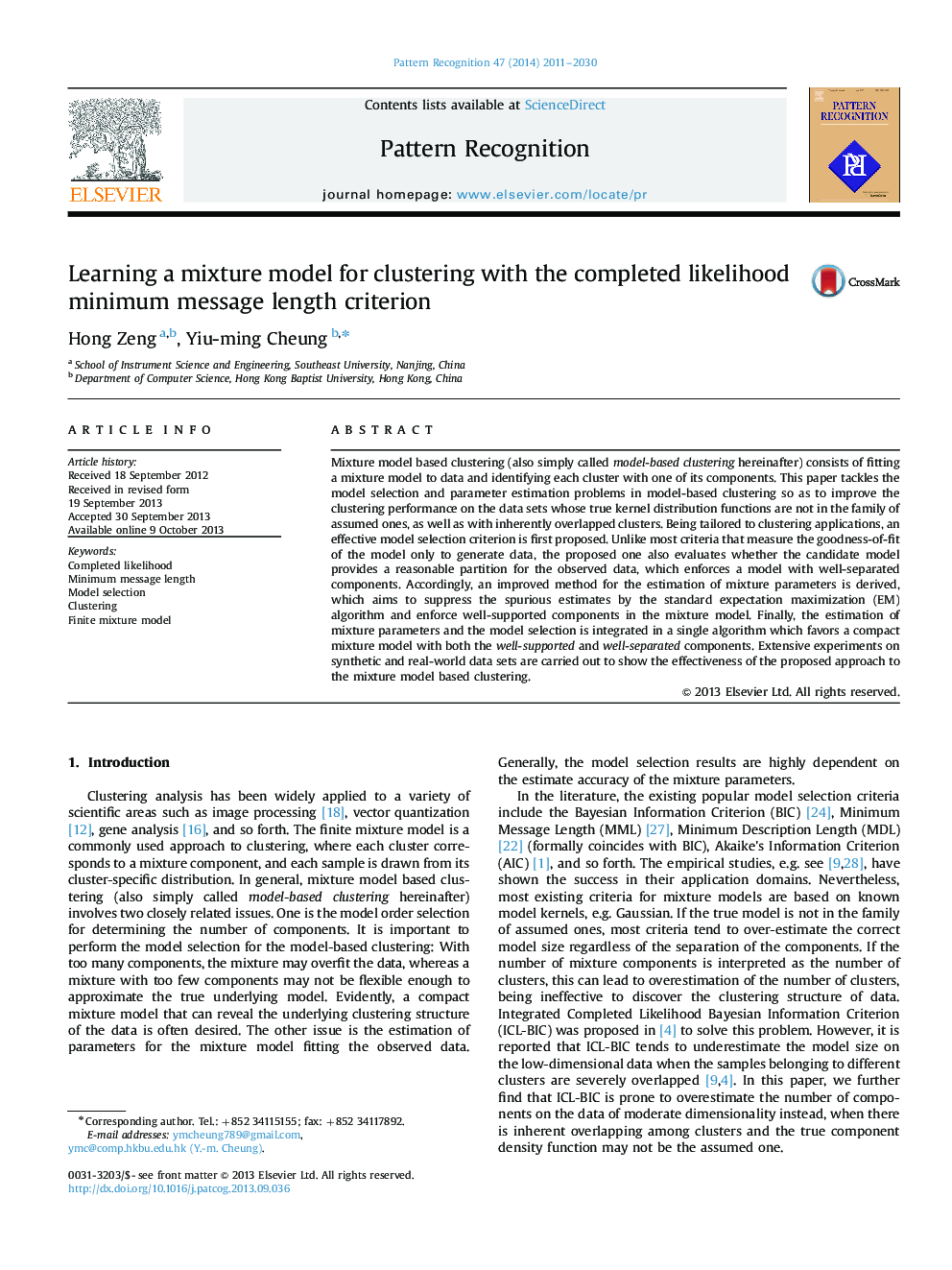| Article ID | Journal | Published Year | Pages | File Type |
|---|---|---|---|---|
| 533280 | Pattern Recognition | 2011 | 20 Pages |
•Propose the CL-MML model selection criterion for cluster number selection.•CL-MML is robust against the overlap among data clusters.•CL-MML outperforms the existing counterparts if a prior knowledge of the data distribution is not available.•A variant of EM algorithm is presented to overcome the deficiency of the standard EM.
Mixture model based clustering (also simply called model-based clustering hereinafter) consists of fitting a mixture model to data and identifying each cluster with one of its components. This paper tackles the model selection and parameter estimation problems in model-based clustering so as to improve the clustering performance on the data sets whose true kernel distribution functions are not in the family of assumed ones, as well as with inherently overlapped clusters. Being tailored to clustering applications, an effective model selection criterion is first proposed. Unlike most criteria that measure the goodness-of-fit of the model only to generate data, the proposed one also evaluates whether the candidate model provides a reasonable partition for the observed data, which enforces a model with well-separated components. Accordingly, an improved method for the estimation of mixture parameters is derived, which aims to suppress the spurious estimates by the standard expectation maximization (EM) algorithm and enforce well-supported components in the mixture model. Finally, the estimation of mixture parameters and the model selection is integrated in a single algorithm which favors a compact mixture model with both the well-supported and well-separated components. Extensive experiments on synthetic and real-world data sets are carried out to show the effectiveness of the proposed approach to the mixture model based clustering.
